The Cultural Capitalism Crux
Exploring the addictive nature of shopping and its connection to the dopaminergic cycle
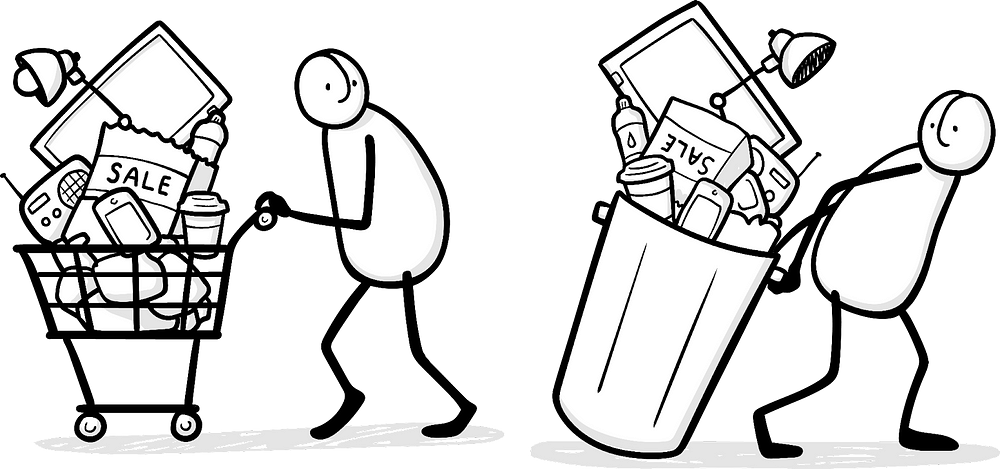
Many things in life are as addictive and conversely self-destructive as compulsive online shopping. This form of shopping carries a relative ease of entry — no need to walk to different stores to ponder the utility of a potential purchase — everything is a click away. As such, moderation becomes difficult to achieve.
The first recognizable credit card was issued in 1958 by the Bank of America. The BankAmericard carried a $300 credit limit and was originally issued to a mere 60,000 Americans.
As of 2021, 73% of Americans over 25 have at least one credit card: the average consumer has three credit cards. The average monthly credit limit in 2022 was $28,930 and the average credit card-carrying consumer has over $7,000 in debt.
Safe to say that credit cards are a common contemporary consumer tool. What’s undecided, is if they are beneficial.
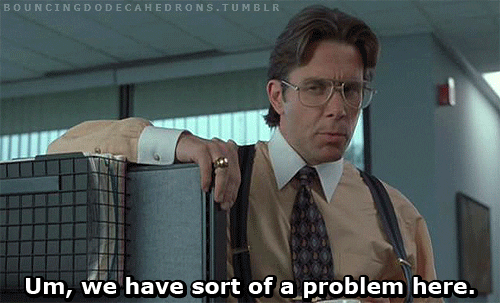
Herein lies the problem: when you combine the relative ease of accessing credit with the abundance of online shopping, most consumers (regardless of their willpower) are at the mercy of the dopaminergic cycle.
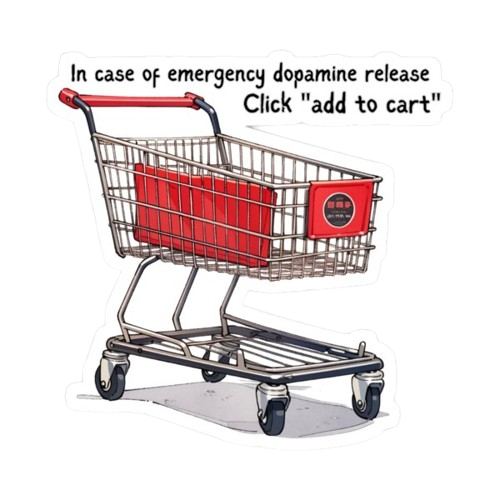
The dopaminergic cycle in relation to shopping highlights how the brain’s reward system, driven by the neurotransmitter dopamine, plays a role in the pleasure associated with acquiring new items. Anticipation, the shopping experience, making a purchase, and post-purchase satisfaction all contribute to the release of dopamine, reinforcing the behavior. While this cycle is natural, it’s crucial to be aware of potential pitfalls, such as impulsive or excessive shopping, which may be linked to compulsive buying behaviors.
The best explanation of how dopamine should be viewed was on the podcast Modern Wisdom explaining a quote by Dr. Robert Sapolsky:
“Dopamine is not about the pursuit of happiness, it is about the happiness of pursuit.”
When we become fixed on outcome-oriented pursuits, we need to constantly get more to fulfill this desire. If, conversely, we were more concerned with process-oriented goals, the outcome would be moot.
We need to move the target

How would this change shopping: the enjoyment would come in going to the mall, and looking at items. All with the understanding that there isn’t a need to purchase anything to gain satisfaction.
That isn’t to say you should never buy anything — minimalism isn’t for everyone — but the focus needs to change.
So says the guy who has worn the same clothes for over a decade — thank the lord the dad bode hasn’t hit me yet.
Course Correction: What to Do
Simply relying on willpower to avoid the temporary dopaminergic effects of a purchase, likely won’t yield long-term results. There must be habits that focus on behaviours that the consumer can control.
For starters, delaying gratification provides a window of opportunity to think about a purchase, and its perceived impacts on your life, before you buy it. The impulse to purchase will often wane with time. This dissipating signal coincides with the waning desire for this product. In this case, your brain has decided the money has greater value to you than the purchase.
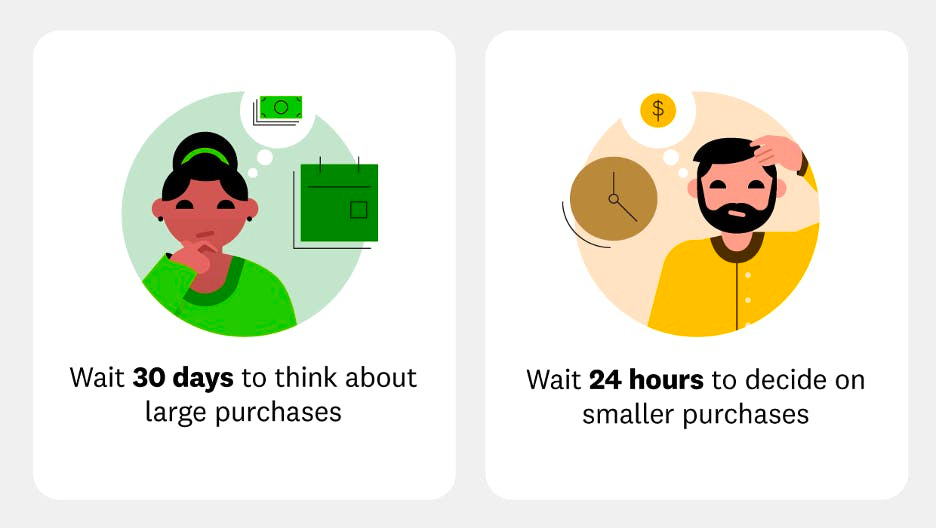
Unsubscribing and limiting exposure to online shopping platforms reduces the temptation. This is an especially effective strategy when you feel easily tempted.
You can’t buy what you don’t see

Along this same vein, lowering your credit limit — who needs $29,000 a month — will help reduce temptation.
If this isn’t enough, getting rid of your credit cards or freezing them in a block of ice (half serious), will limit your ability to buy outside your means. If you don’t have the cash, you can’t buy.
Simple.
There is great power in reallocating your time from being a buyer to a giver.
Dopamine, serotonin, and oxytocin make up the Happiness Trifecta. Any activity that increases the production of these neurochemicals will cause a boost in mood. Any kind of random act of kindness boosts the Happiness Trifecta. The greatest power of giving is the infinite nature of its abundance: you can endlessly give and still reap the mood and health benefits.
Many people who are avid online shoppers are satisfying wants, or perceived desires. They already have their basic needs met and are searching for happiness. What if they could receive those same hormonal signals but also assist others in need?
At the end of the day, you have to understand that you live in a society that runs on the hedonistic desires of its citizens. That doesn’t mean you have to fall prey as well. Find a hobby that doesn’t require the liquidation of your assets but instead, builds strong values and connections.
When in doubt, go mall walking.
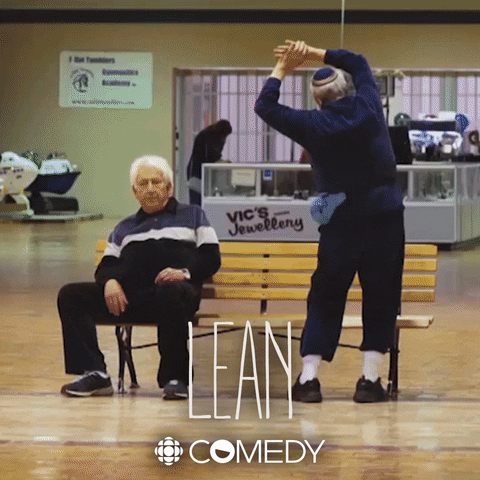
I’d love to know what you thought of this post, feel free to click reply and let me know.




